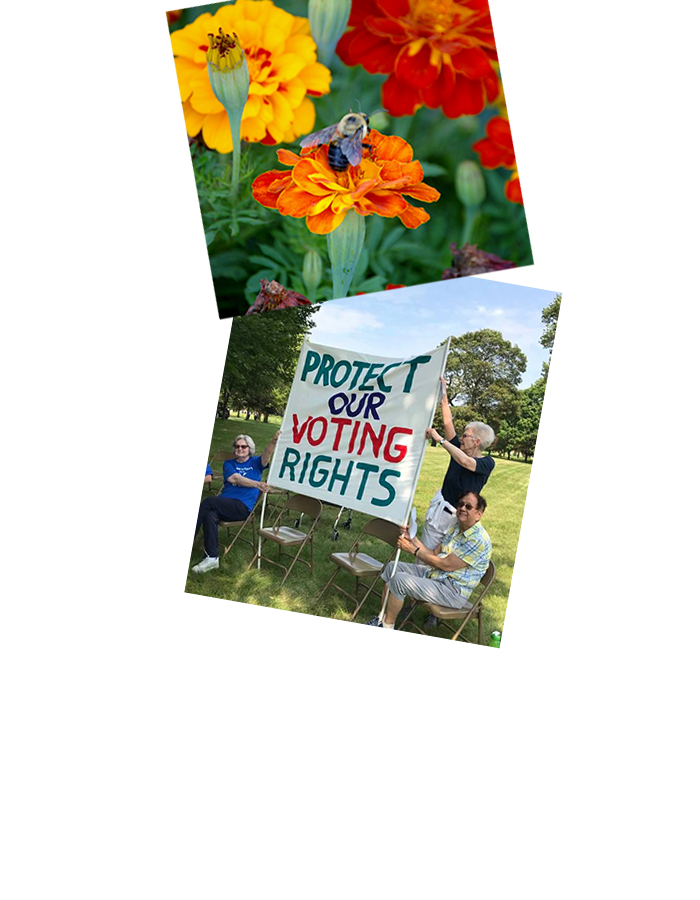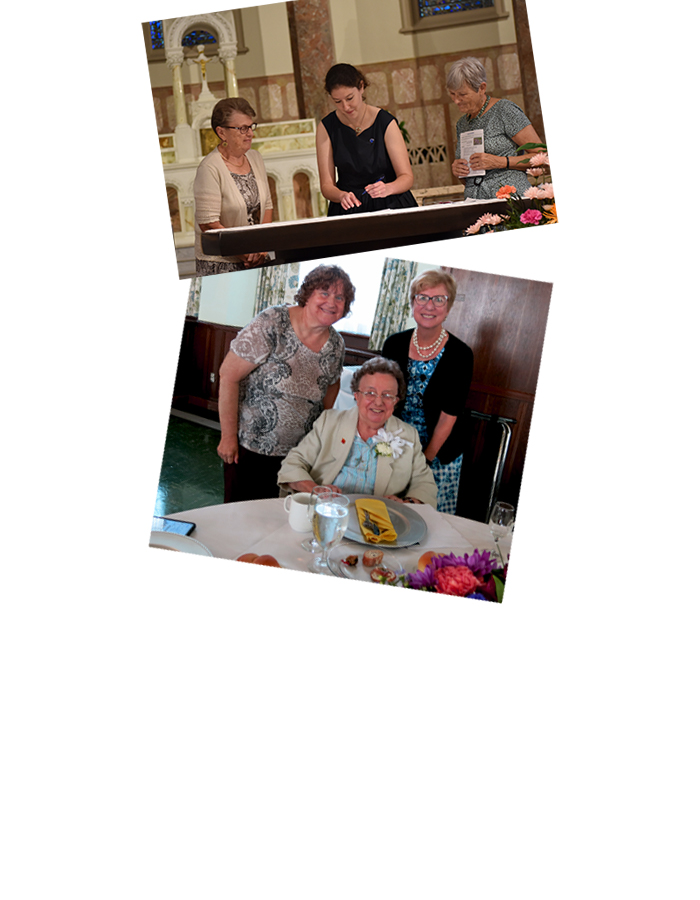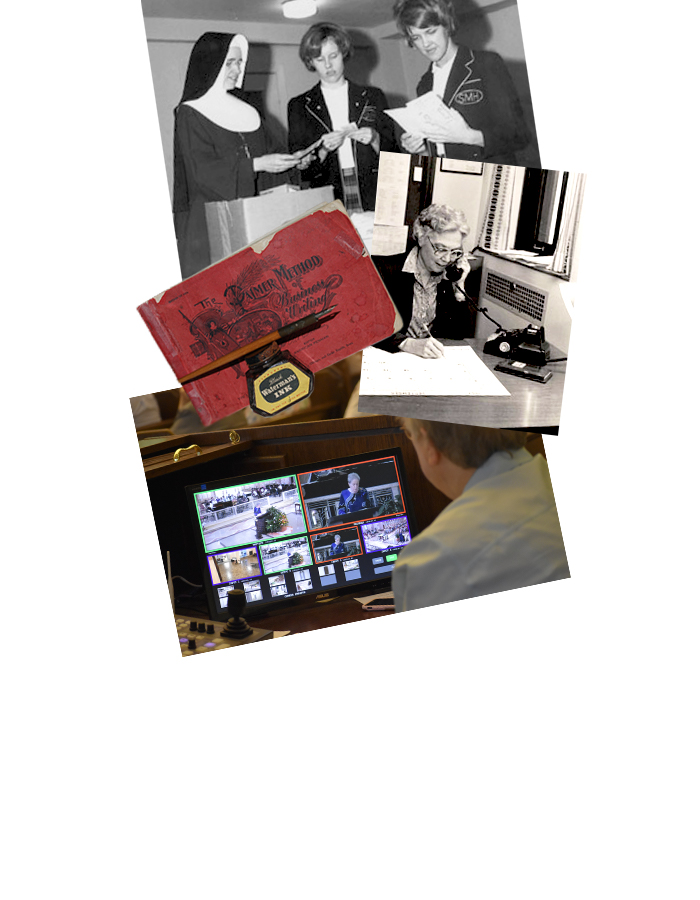Ninety percent of the executions worldwide are carried out by six countries: China, Iran, Pakistan, Iraq, Sudan and the United States. The United States is the only western nation that still uses the death penalty as a form of punishment.
The death penalty is in violation of our most fundamental human rights. Capital punishment devalues all human life, eliminating the possibility for transformation of the spirit that is intrinsic to humanity. It is fallible and irrevocable.
Recent polls have shown that a majority in the U.S. support a moratorium on the death penalty due to increasing evidence of wrongful convictions. When asked if they are in favor of the death penalty, most Americans say yes. However, when asked to choose between the death penalty and life in prison without parole, most choose the latter. In addition, the death penalty continues to be overwhelmingly a punishment reserved for the poor and people of color.
For close to 1,500 years, the Catholic Church taught that the state had a right to punish criminals “by means of penalties commensurate with the gravity of the crime, not excluding, in cases of extreme gravity, the death penalty.”
On August 2, 2018, the Vatican announced that it had formally changed the official Catechism of the Catholic Church on the death penalty, calling capital punishment “an attack on the inviolability and dignity of the person” and deeming it “inadmissible” in all cases.
Online Resources
For Whom the Bell Tolls
Prayer Service for Restoration and Healing
Catholic leaders object to reinstatement of federal death penalty
Carol Zimmerman, Catholic News Service, July 25, 2019
The announcement by the Justice Department that it is reinstating the federal death penalty for the first time in 16 years was unwelcome news for Catholic leaders who have advocated against capital punishment.
Death Penalty: Its Adverse Impact on Communities of Color and the Poor, and Challenges to the Catholic Church
Henry Organ, National Black Catholic Congress, July 28, 2014
Articles and polls reveal that a significant percentage of Catholics support the death penalty, which has a disparate and adverse impact on, people of color and the poor.
Catholic Mobilizing Network
Catholic Mobilizing Network is a national organization that mobilizes Catholics and all people of goodwill to value life over death, to end the use of the death penalty, to transform the U.S. criminal justice system from punitive to restorative, and to build capacity in U.S. society to engage in restorative practices.
Catholic Campaign to End the Use of the Death Penalty
The impetus for the campaign was the anniversary of the first comprehensive United States Catholic bishops’ statement on the topic issued in 1980
Citizens United for Alternatives to the Death Penalty
CUADP works to end the death penalty in the United States through education and the promotion of tactical grassroots activism.
National Coalition to Abolish the Death Penalty
NCADP provides information, advocates for public policy and mobilizes and supports individuals and institutions working to abolish capital punishment.
Holder a Lonely Holdout as Death Row Enters Death Throes
Susanne Dumbleton, Truthout, March 16, 2014
In seeking the death penalty for the accused Boston marathon bomber, Eric Holder violates his personal opposition, Boston public opinion and growing nationwide resistance to execution as criminal punishment.
“So Long as They Die: Lethal Injections in the United States”
Jamie Fellner and Sarah Tofte, Human Rights Watch, April 2006
“The Innocence Project: Guilty until Proven Innocent”
Andrew Gumbel, Common Dreams, May 4, 2006
“Evangelium Vitae”
Pope John Paul II, the Vatican website, March 25, 1995
“Creating More Victims: How Executions Hurt the Families Left Behind”
Susannah Sheffer and Renny Cushing, Murder Victims Families for Human Rights, 2006
“Bishops’ Conference Applauds Supreme Court Decision on The Death Penalty For Juvenile Offenders”
The United States Conference of Catholic Bishops, USCCB, March 1, 2005
“Responsibility, Rehabilitation, and Restoration”
The United States Conference of Catholic Bishops, USCCB, Nov. 15, 2000
Books
Just Mercy
Bryan Stevenson
A powerful true story about the potential for mercy to redeem us, and a clarion call to fix our broken system of justice—from one of the most brilliant and influential lawyers of our time.
A Lesson Before Dying
Ernest J. Gaines
A young man who returns to 1940s Cajun country to teach visits a black youth on death row for a crime he didn’t commit. Together they come to understand the heroism of resisting.
Dead Man Walking
Helen Prejean
In 1982, Sister Helen Prejean became the spiritual advisor to Patrick Sonnier, the convicted killer of two teenagers. In the months before his death, Prejean came to know a man who was as terrified as he had once been terrifying. At the same time, she came to know the families of the victims and the men whose job it was to execute him. Out of that dreadful intimacy comes a profoundly moving spiritual journey through our system of capital punishment.
The Death of Innocents: An Eyewitness Account of Wrongful Executions
Helen Prejean
In her second book Prejean focuses her argument on the ways in which an unjust system may be killing innocent people.
The Death Penalty: An Historical and Theological Survey
James J. Megivern
A comprehensive history of the death penalty in the west, this book explores the development of the death penalty chronologically and through the early, medieval and modern periods while also providing geographical surveys.
Audio/Visual/Interactive Resources
Just Mercy
Produced by Warner Bros. Pictures, 2019
Just Mercy tells the true story of Walter McMillian, who, with the help of young defense attorney Bryan Stevenson, appeals his murder conviction. The film is based on the memoir of the same name, written by Stevenson.
Dead Man Walking
Produced by MGM, 1996
Superbly adapted from the nonfiction book of the same name by Sister Helen Prejean. In examining the issue of capital punishment from a humanitarian perspective, the film urges thoughtful reflection on the justifications for legally ending a human life.
Do No Harm
PBS/NOW, 2006
As capital punishment becomes more clinical, doctors and nurses are being given medical responsibilities as part of the execution team. This website follows up on the show with exclusive features and up-to-date information.
The Exonerated
Court TV, 2005
This film places the audience as observer to personal interviews with ex-cons whose death row convictions were overturned. It is a biting commentary on the tragic state of racial and socioeconomic inequality and abuse, which then highlights severe failures of the U.S. legal system.
Redemption
Produced by fX Network, 2004
Redemption tells the story of Stanley “Tookie” Williams, founder of the Crips L.A. street gang. The story follows his fall into gang-banging, his prison term, and his work writing children’s novels encouraging peace and non-violent conflict resolution which earned him multiple Nobel Peace Prize nominations. After exhausting all forms of appeal, Stanley Williams was executed by lethal injection at San Quentin State Prison, on Dec. 13, 2005.
The Green Mile
Castlerock Entertainment, 1999
This prison drama, set in 1935 Louisiana, depicts a death-row guard (Tom Hanks) who comes to believe in the innocence of an inmate (Michael Clarke Duncan) whose miraculous healing powers affect those around him in startling ways.










